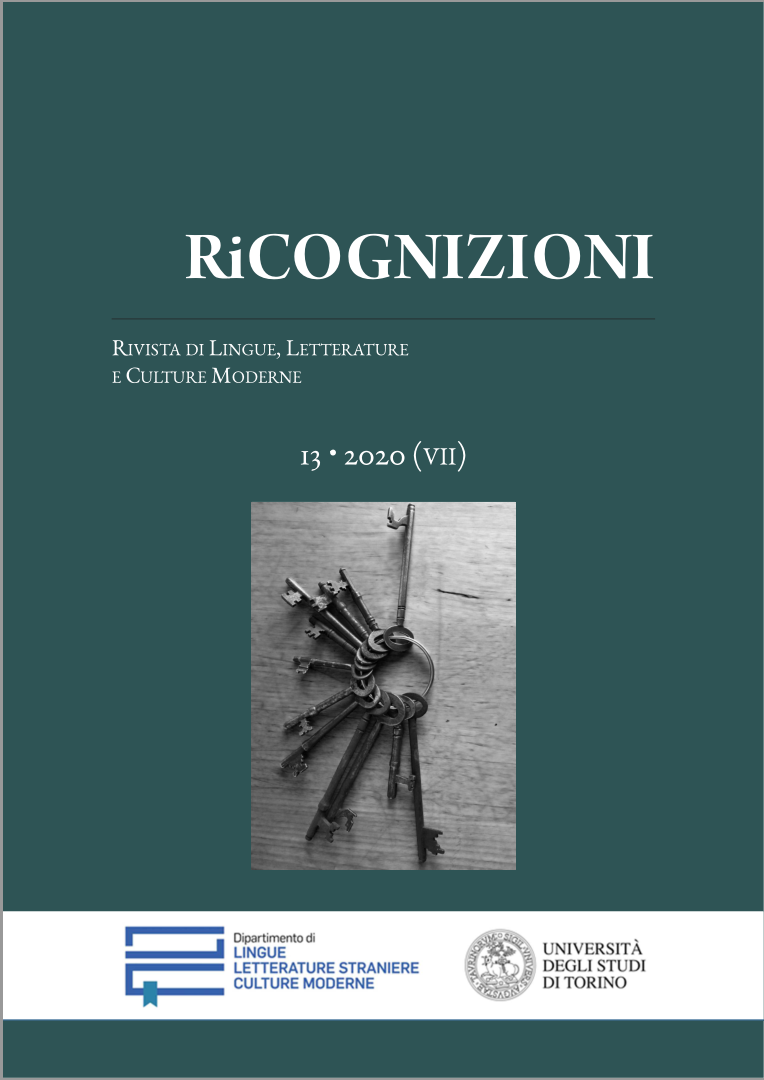I riflessi della letteratura occidentale sulla letteratura giapponese del Novecento
DOI:
https://doi.org/10.13135/2384-8987/4385Abstract
The article aims to give an overview of the different ways in which Japanese writers of the 20th century dealt with the strong western influences that in the period between Taishō and Shōwa era brought about the birth of Japanese Modernism, a literary strand that brings together two great literary currents, the Shinkankakuha (School of Neosensimo) and Shinshinrigakuha (School of Neopsychology), whose main exponents are Yokomitsu Riichi (1898-1947), Itō Sei (1905-1969) and the future Nobel Prize winner Kawabata Yasunari (1899-1972). Modernism represents an essential link between late 19th and modern 20th century Japanese literature, which attained global renown thanks to aesthetes like Tanizaki Jun'ichirō (1886-1965), Kawabata Yasunari (1899-1972) and Mishima Yukio (1925-1970), but also to the decadent writers of the Buraiha, such as Dazai Osamu (1909-1948), and contemporaries authors such as the Nobel Prize Ōe Kenzaburō (1935-). Modernism represents the pinnacle of the study and assimilation of Western literature in Japan, an obsessive imitation of themes and style of European writers of the early 1900s; nevertheless, it also represents the achievement of the awareness of the impossibility of creating a truly modern and original Japanese literature through an empty imitation of writers such as James Joyce or Marcel Proust.
##submission.downloads##
Pubblicato
Come citare
Fascicolo
Sezione
Licenza
Gli autori che pubblicano su questa rivista accettano le seguenti condizioni:- Gli autori mantengono i diritti sulla loro opera e cedono alla rivista il diritto di prima pubblicazione dell'opera, contemporaneamente licenziata sotto una Licenza Creative Commons - Attribuzione che permette ad altri di condividere l'opera indicando la paternità intellettuale e la prima pubblicazione su questa rivista.
- Gli autori possono aderire ad altri accordi di licenza non esclusiva per la distribuzione della versione dell'opera pubblicata (es. depositarla in un archivio istituzionale o pubblicarla in una monografia), a patto di indicare che la prima pubblicazione è avvenuta su questa rivista.
- Gli autori possono diffondere la loro opera online (es. in repository istituzionali o nel loro sito web) prima e durante il processo di submission, poiché può portare a scambi produttivi e aumentare le citazioni dell'opera pubblicata (Vedi The Effect of Open Access).








